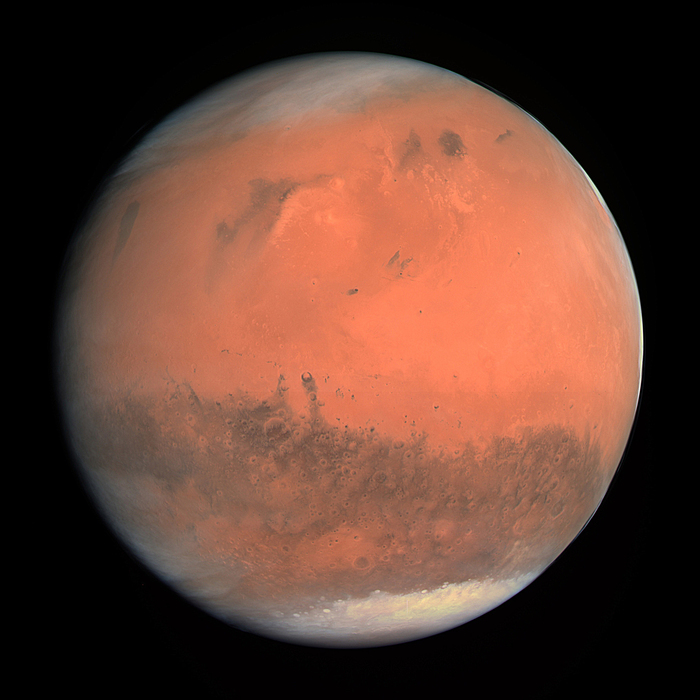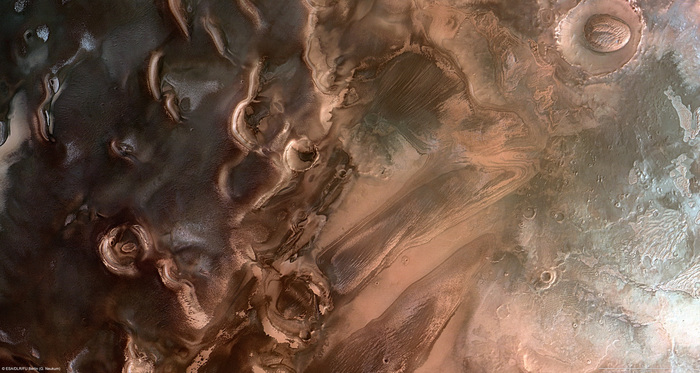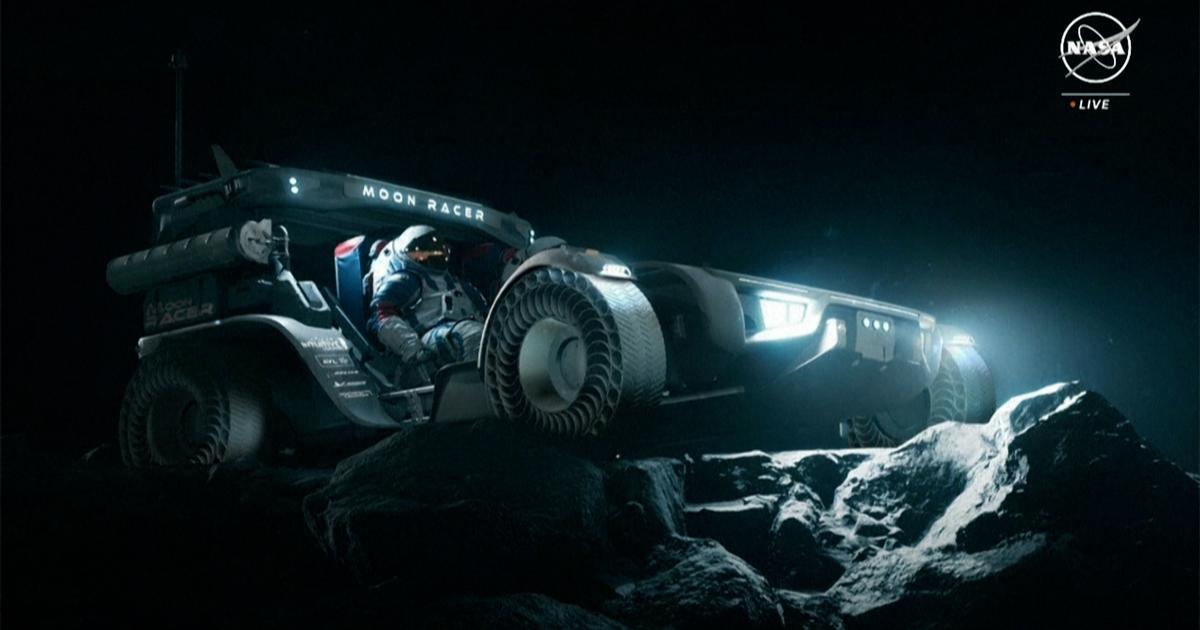There is a network of salt lakes under the ice of the south pole of Mars, which could help rewrite the history of the planet's climate and shed light on the possible existence of elemental life forms.
Around the lake discovered in 2018 by an Italian group, there are three others, described in the journal Nature Astronomy by the same authors of the first study, coordinated by Elena Pettinelli and Sebastian Emanuel Lauro, of the University of Roma Tre, with Roberto Orosei, of the 'National Institute of Astrophysics (Inaf).
Researchers from the National Research Council (Cnr) and Italians working in Australia (University of Southern Queensland) and Germany (Jacobs University in Bremen) participated.
The new lakes were also discovered with the Marsis radar, supplied by the Italian Space Agency (ASI) to the Mars Express mission of the European Space Agency (ESA).
"Compared to 2018 we have greatly expanded the study area and used a different method of analysis, now the data indicate that there is a larger water system", Elena Pettinelli told ANSA.
If two years ago the research had been conducted on an area of 20 square kilometers, now it has been reviewed an area of 250 kilometers by 300 and "the fact that there are complex hydrological structures suggests that there may be others".
The enthusiasm of the researchers is skyrocketing: "the 2018 discovery was only the first evidence of a much larger system of liquid water bodies in the Martian subsoil: that's exactly what I would have hoped for, a great result, really!" observed Enrico Flamini, president of the International School of Research for Planetary Sciences (IRSPS) at the University of Chieti-Pescara and one of the authors of the research two years ago, when he was scientific director of ASI.
The scientific director of Marsis radar, Roberto Orosei, was also satisfied, for whom "the discovery of an entire system of lakes implies that their formation process is relatively simple and common, and that these lakes probably existed for much of the history of For this reason - he noted - they could still retain traces of any life forms that could have evolved when Mars had a dense atmosphere, a milder climate and the presence of liquid water on the surface, similar to the early Earth ". .





